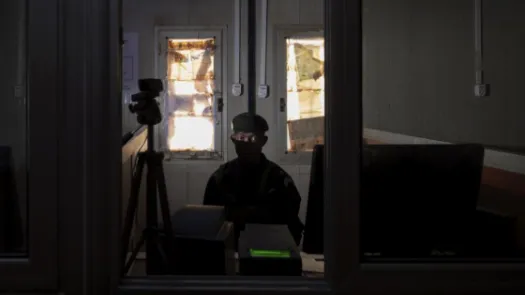After HMRC Ruling, What Will Government Do About Potentially Illegal Exports Of Surveillance Technology?

After two years of pressing the Government to come clean on what, if anything, they are doing to investigate the potentially illegal export of the spyware FinFisher, a ruling today by the Administrative Court in Privacy International’s favour marks a significant turning point in our long-running campaign to bring more transparency and accountability to the surveillance industry.
The High Court slammed Her Majesty’s Revenue and Customs for not disclosing whether it was investigating the potentially illegal export of FinFisher, saying it was a “fundamental failing” to issue blanket refusals when Privacy International sought information. The Court rightfully ruled today that that the blanket refusal by HMRC to reveal the state of their investigation into the export of FinFisher was unlawful, must be quashed, and taken again.
With this momentum, Privacy International will redouble our efforts to push the British Government to seek justice for victims of intrusive surveillance by repressive foreign intelligence agencies. We demand to know what they are doing to hold British companies to account for potentially illegally exporting these dangerous technologies to countries with histories of human rights abuse.
This decision gives important impetus to calls for transparency in these cases and compels HRMC to roll back its disproportionate and unjustifiable policy of outright refusing to provide information to key complainants and victims of surveillance. In order to seek redress for those wrongly targeted, we must first know what Government is doing to protect them.
Why PI took action
Over eighteen months ago ago, PI asked for an urgent investigation into Gamma on behalf of victims who had been targeted by FinFisher. Victims and complainants have the right to receive information from bodies charged with law enforcement functions, to know that the body received the complaint and is reviewing it, and whether an investigation and subsequent prosecution might take place once a decision has been made. This is critical for the proper functioning of law enforcement and for confidence in the carrying out of those functions.
First, HMRC said they could not comment on individual cases, claiming to be statutorily barred from doing so. Additionally, they said the agency was unable to keep those interested informed, with even UK Parliamentarians being told that 'HMRC cannot comment on individual cases" in response to Parliamentary Questions by Green Party MP Caroline Lucas and Labour Party MP Ann McKechin.
When Privacy International and its lawyers, Bhatt Murphy Solicitors, met with HMRC in court in March, the agency shifted positions and stated that it in fact is not prohibited to divulge information about the case. Rather, they claimed, they were exercising their discretionary power not to reveal information due to the individual facts of this case.
It is wrong that the British government believes that the targeting of human rights activists with invasive surveillance technology like FinFisher does not warrant urgent action and complete disclosure. This surveillance technology, which appears to have been exported illegally, takes over computers and mobile phones, remotely switches on cameras and microphones, monitors emails, chats, and voice calls, and tracks user location. Its export from the UK, without a licence, to countries such as Bahrain and Ethiopia should prompt swift and decisive action by HMRC.
One of the primary motivations for Privacy International in pursuing this case was the absurd reasoning, provided by HMRC, that victims and those representing them could submit complaints but are not entitled to be informed or updated on the progress of such complaints. Privacy International’s position is vindicated by today’s ruling, in which the Court is highly critical of HMRC's failures throughout it's decision making process and portrays its position as reflecting "internal confusion which undermines the credibility of its response".
Failing victims
HMRC said in court that the reason they haven't reached out to any of those infected with FinFisher is that they didn't think they had any information to offer. This position ignores the fact Privacy International has been investigating FinFisher for almost four years and provided compelling evidence, including Citizenlab's research, which has shown FinFisher is being used all over the world, witness evidence that was submitted on behalf of Dr Ala'a Shehabi, a British born Bahraini pro-democracy activist whose computer had been targeted by the Bahrain authorities using technology exported by Gamma, and a separate criminal complaint that has been filed on behalf of Tadesse Kersmo, an Ethiopian political refugee living in Britain who was infected with FinFisher.
The public, especially victims of surveillance, have a right to know what our Government is doing to protect us. It is wrong to say that victims and complainants of crimes do not have a right to information about the state of any investigation, fails to allow victims of FinFisher to know if company will be prosecuted, and thus fails to provide them with the access to courts to judicial review decisions not to prosecute that they are entitled to.
Moving forward
Today’s ruling is just another step in the larger movement to hold the secretive surveillance industry to account.
The judgment today brings transparency to bureaucratic secrecy that stifles the right of victims and will shed light on what Government is doing to prevent the illegal export of technology allowing for allowing for blanket and secret surveillance of entire populations. Further, new controls on the sale of these technologies enacted late last year show the growing recognition of the intrusiveness and danger inherent in these technologies.
We must ensure that this momentum is sustained to protect vulnerable populations around the world who are the targets of repressive states. This multi-billion dollar industry can no longer exist in the dark, enabling authoritarian governments to violate rights and suppress opposition. Today’s ruling is a turning point and will help serve in the fight to protect the rights of people around the world.



